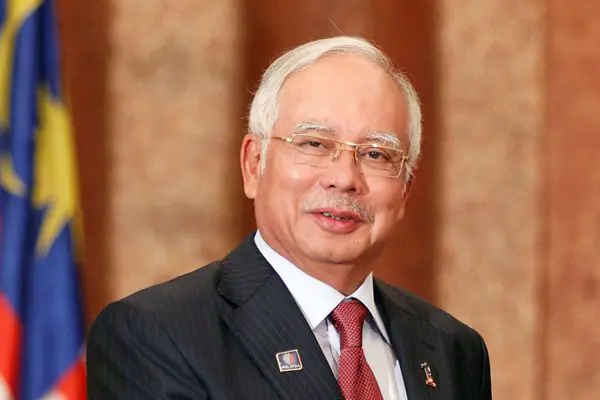The announcement to end investigation on political donations to Malaysian Prime Minister Najib Razak is likely to help him focus on the economic challenges facing his country.
Under Malaysia's legal system, the decision by Attorney General Mohamed Apandi Ali to end the investigations would be seen by the government as an end to the controversies, said Oh Ei Sun, a political analyst and former political secretary to Najib.
Apandi cleared Najib of any wrongdoing on Tuesday, saying the evidence submitted by the Malaysian Anti-Corruption Commission suggested that the prime minister had committed no criminal offenses in the case of some 681 million U.S. dollars transferred into the his personal accounts.
The donation was given by the Saudi royal family "without any consideration," he said.
No wrongdoing was found in the cases related to SRC International, a former subsidiary of the debt-laden state investment fund 1Malaysia Development Berhad (1MDB). Najib chairs 1MDB's advisory board.
The attorney general's announcement has failed to quell suspicions so far. The opposition has cried foul on the decision.
Malaysia's former prime minister Mahathir Mohamed, who has openly called for Najib to step down over the issues, insisted on Wednesday that "merely having that amount of money in a prime minister's account is already wrong even though it may not be criminal."
The Malaysian Anti-Corruption Commission said it would seek a review on the attorney general's decision by an independent penal, but an official insisted it was a normal process and should not be misinterpreted as an action rejecting the decision, according the state news agency Bernama.
"Issues such as the revitalization of the economy and the implementation of Trans-Pacific Partnership will likely be the focus of the government in the future," Oh said.
"No matter the opposition like it or not, the disturbing issues related to 1MDB and the prime minister seems to have come to an end."
The suspicions among the public will be decided by the next general election due in 2018, he added.
Najib has welcomed the attorney general's decision, saying the issue "has been an unnecessary distraction for the country."
"I will now redouble my focus on the key issues that matter to Malaysia, especially combating the threat of terrorism, and strengthening the economy in the face of global headwinds," he said in a statement.
As a major oil and gas exporter in the region, Malaysia is hit hard by the falling oil prices. Najib is scheduled to announce a revised 2016 budget on Thursday in response to the oil prices falling below 30 U.S. dollars a barrel.
Meanwhile, Najib's government has vigorously promoted the participation of the 12-country Trans-Pacific Partnership as an essential part for growth despite suspicions in the country.
The lower house of parliament endorsed the accord on Wednesday by 127 votes to 84 votes against.
The parliament approval is expected to boost Malaysia's position as the 12 Pacific Rim countries, namely Singapore, Brunei, New Zealand, Chile, the United States, Australia, Peru, Vietnam, Malaysia, Mexico, Canada and Japan, sign the accord in New Zealand next month, after the conclusion of five-year negotiations in October.
 简体中文
简体中文

